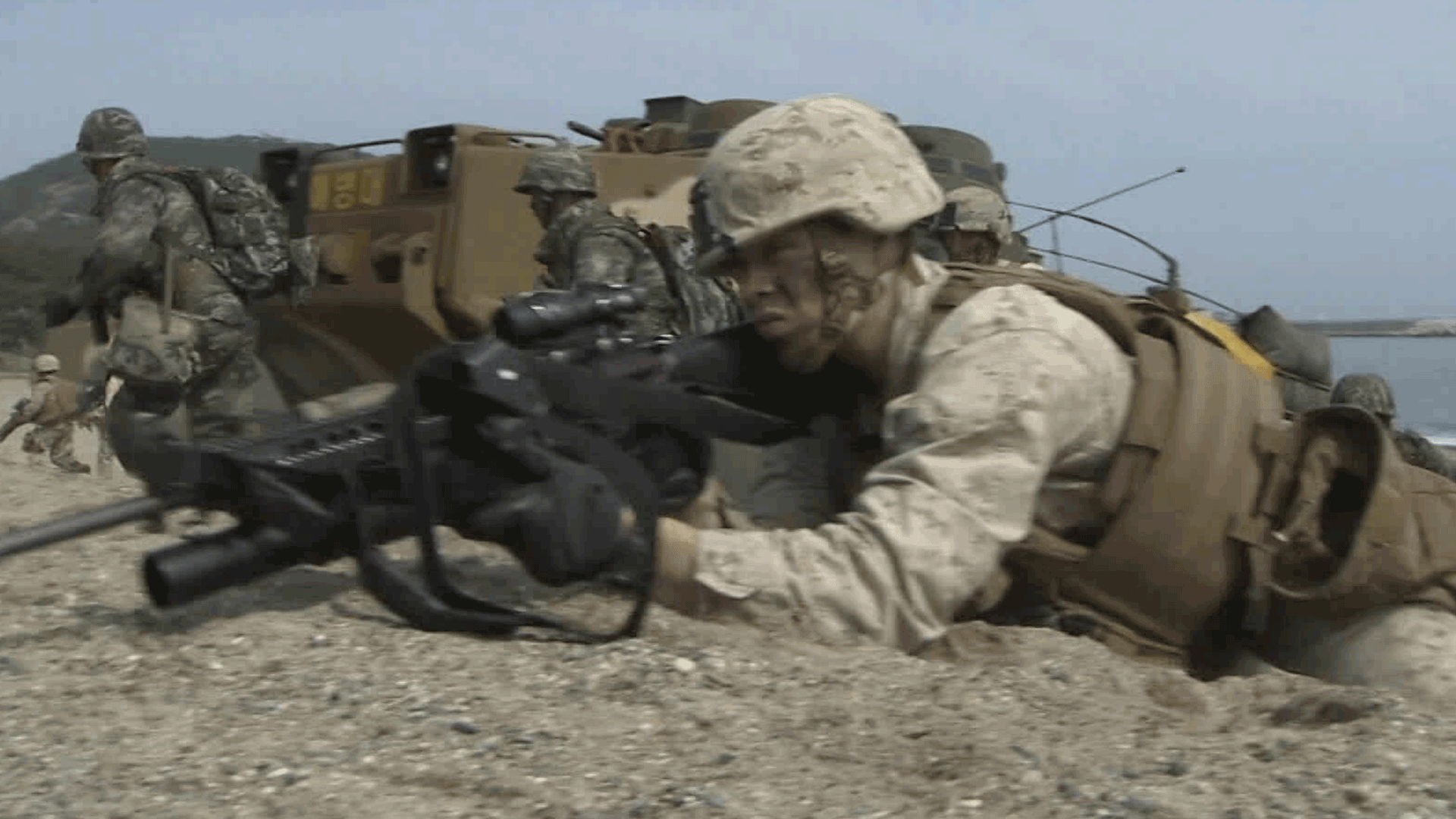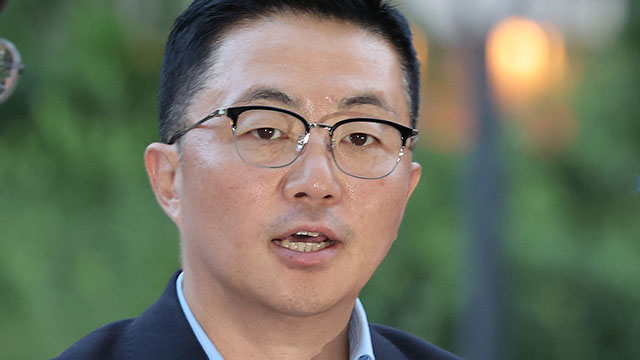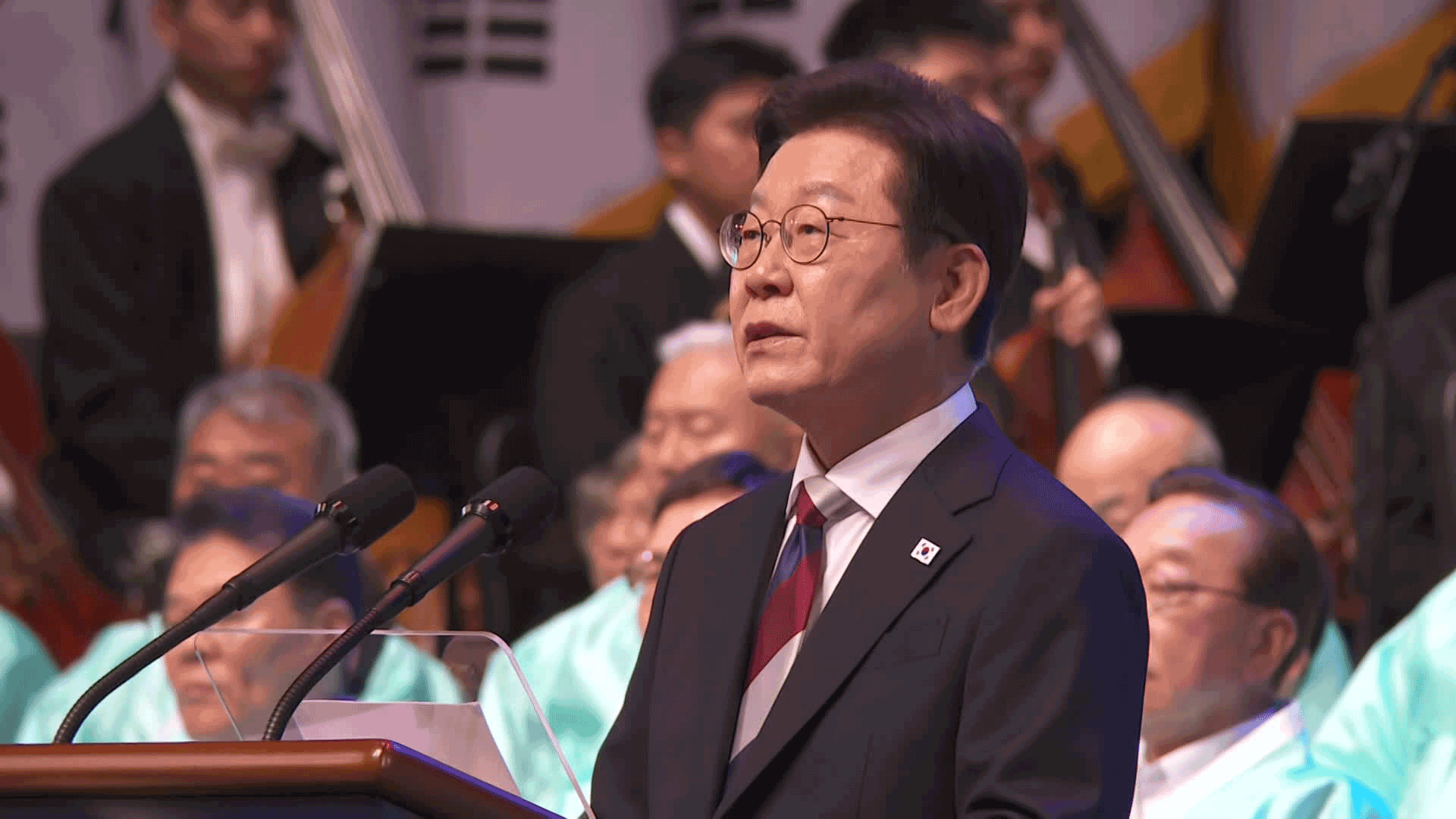[Anchor]
Let’s now take a look at Korea–Japan security.
Since liberation, security in Northeast Asia has been shaped by the Cold War, then by the post-Cold War era, and now has entered a new phase defined by strategic competition between the United States and China.
How will Korea–Japan and Korea–U.S.–Japan security cooperation change going forward? Reporter Kim Kyung-jin explains.
[Report]
The two pillars of the U.S. military’s defense posture in Northeast Asia are the U.S. Forces Korea, which deters North Korea, and the U.S. Forces Japan, which fall under the Pacific Command.
This structure has continued since the Cold War, but as the United States shifts its focus to countering China, it is moving the weight that had been placed on deterring North Korea toward the Pacific.
In this context, the United States is placing greater emphasis than ever on “Korea–U.S.–Japan security cooperation.”
Korea and Japan appear to be aligning themselves with the U.S. approach.
[Lee Baek-soon/Former Ambassador to Australia: "As Korea–Japan relations improve little by little, I think it is only natural that trilateral security cooperation among Korea, the U.S., and Japan strengthens in solidarity."]
Some voices say that since both Korea and Japan face North Korea directly, the two countries should expand cooperation to ensure that deterrence against North Korea does not weaken.
Suggestions include upgrading the intelligence-sharing system, sharing missile warning data, and preparing joint response scenarios for North Korean provocations.
[Cho Sung-ryul/Former Consul General to Osaka: "We need to emphasize the necessity for Korea and Japan to jointly respond to North Korea’s threats through cooperation."]
However, concerns remain about sharing sensitive military information, due to historical issues such as Japan’s past invasions and its territorial claims over Dokdo.
[Jang Sung-il/Research Fellow, Northeast Asian History Foundation: "When strengthening military cooperation between Korea and Japan, we need to be clear about the purpose and policy objectives for doing so."]
On Aug. 23, President Lee Jae Myung is scheduled to discuss bilateral security cooperation with Prime Minister Ishiba. Attention is focused on whether the two countries will take a step forward in their cooperation.
This is Kim Kyung-jin, KBS News.
Let’s now take a look at Korea–Japan security.
Since liberation, security in Northeast Asia has been shaped by the Cold War, then by the post-Cold War era, and now has entered a new phase defined by strategic competition between the United States and China.
How will Korea–Japan and Korea–U.S.–Japan security cooperation change going forward? Reporter Kim Kyung-jin explains.
[Report]
The two pillars of the U.S. military’s defense posture in Northeast Asia are the U.S. Forces Korea, which deters North Korea, and the U.S. Forces Japan, which fall under the Pacific Command.
This structure has continued since the Cold War, but as the United States shifts its focus to countering China, it is moving the weight that had been placed on deterring North Korea toward the Pacific.
In this context, the United States is placing greater emphasis than ever on “Korea–U.S.–Japan security cooperation.”
Korea and Japan appear to be aligning themselves with the U.S. approach.
[Lee Baek-soon/Former Ambassador to Australia: "As Korea–Japan relations improve little by little, I think it is only natural that trilateral security cooperation among Korea, the U.S., and Japan strengthens in solidarity."]
Some voices say that since both Korea and Japan face North Korea directly, the two countries should expand cooperation to ensure that deterrence against North Korea does not weaken.
Suggestions include upgrading the intelligence-sharing system, sharing missile warning data, and preparing joint response scenarios for North Korean provocations.
[Cho Sung-ryul/Former Consul General to Osaka: "We need to emphasize the necessity for Korea and Japan to jointly respond to North Korea’s threats through cooperation."]
However, concerns remain about sharing sensitive military information, due to historical issues such as Japan’s past invasions and its territorial claims over Dokdo.
[Jang Sung-il/Research Fellow, Northeast Asian History Foundation: "When strengthening military cooperation between Korea and Japan, we need to be clear about the purpose and policy objectives for doing so."]
On Aug. 23, President Lee Jae Myung is scheduled to discuss bilateral security cooperation with Prime Minister Ishiba. Attention is focused on whether the two countries will take a step forward in their cooperation.
This is Kim Kyung-jin, KBS News.
■ 제보하기
▷ 카카오톡 : 'KBS제보' 검색, 채널 추가
▷ 전화 : 02-781-1234, 4444
▷ 이메일 : kbs1234@kbs.co.kr
▷ 유튜브, 네이버, 카카오에서도 KBS뉴스를 구독해주세요!
- Security cooperation outlook
-
- 입력 2025-08-16 00:22:59

[Anchor]
Let’s now take a look at Korea–Japan security.
Since liberation, security in Northeast Asia has been shaped by the Cold War, then by the post-Cold War era, and now has entered a new phase defined by strategic competition between the United States and China.
How will Korea–Japan and Korea–U.S.–Japan security cooperation change going forward? Reporter Kim Kyung-jin explains.
[Report]
The two pillars of the U.S. military’s defense posture in Northeast Asia are the U.S. Forces Korea, which deters North Korea, and the U.S. Forces Japan, which fall under the Pacific Command.
This structure has continued since the Cold War, but as the United States shifts its focus to countering China, it is moving the weight that had been placed on deterring North Korea toward the Pacific.
In this context, the United States is placing greater emphasis than ever on “Korea–U.S.–Japan security cooperation.”
Korea and Japan appear to be aligning themselves with the U.S. approach.
[Lee Baek-soon/Former Ambassador to Australia: "As Korea–Japan relations improve little by little, I think it is only natural that trilateral security cooperation among Korea, the U.S., and Japan strengthens in solidarity."]
Some voices say that since both Korea and Japan face North Korea directly, the two countries should expand cooperation to ensure that deterrence against North Korea does not weaken.
Suggestions include upgrading the intelligence-sharing system, sharing missile warning data, and preparing joint response scenarios for North Korean provocations.
[Cho Sung-ryul/Former Consul General to Osaka: "We need to emphasize the necessity for Korea and Japan to jointly respond to North Korea’s threats through cooperation."]
However, concerns remain about sharing sensitive military information, due to historical issues such as Japan’s past invasions and its territorial claims over Dokdo.
[Jang Sung-il/Research Fellow, Northeast Asian History Foundation: "When strengthening military cooperation between Korea and Japan, we need to be clear about the purpose and policy objectives for doing so."]
On Aug. 23, President Lee Jae Myung is scheduled to discuss bilateral security cooperation with Prime Minister Ishiba. Attention is focused on whether the two countries will take a step forward in their cooperation.
This is Kim Kyung-jin, KBS News.
Let’s now take a look at Korea–Japan security.
Since liberation, security in Northeast Asia has been shaped by the Cold War, then by the post-Cold War era, and now has entered a new phase defined by strategic competition between the United States and China.
How will Korea–Japan and Korea–U.S.–Japan security cooperation change going forward? Reporter Kim Kyung-jin explains.
[Report]
The two pillars of the U.S. military’s defense posture in Northeast Asia are the U.S. Forces Korea, which deters North Korea, and the U.S. Forces Japan, which fall under the Pacific Command.
This structure has continued since the Cold War, but as the United States shifts its focus to countering China, it is moving the weight that had been placed on deterring North Korea toward the Pacific.
In this context, the United States is placing greater emphasis than ever on “Korea–U.S.–Japan security cooperation.”
Korea and Japan appear to be aligning themselves with the U.S. approach.
[Lee Baek-soon/Former Ambassador to Australia: "As Korea–Japan relations improve little by little, I think it is only natural that trilateral security cooperation among Korea, the U.S., and Japan strengthens in solidarity."]
Some voices say that since both Korea and Japan face North Korea directly, the two countries should expand cooperation to ensure that deterrence against North Korea does not weaken.
Suggestions include upgrading the intelligence-sharing system, sharing missile warning data, and preparing joint response scenarios for North Korean provocations.
[Cho Sung-ryul/Former Consul General to Osaka: "We need to emphasize the necessity for Korea and Japan to jointly respond to North Korea’s threats through cooperation."]
However, concerns remain about sharing sensitive military information, due to historical issues such as Japan’s past invasions and its territorial claims over Dokdo.
[Jang Sung-il/Research Fellow, Northeast Asian History Foundation: "When strengthening military cooperation between Korea and Japan, we need to be clear about the purpose and policy objectives for doing so."]
On Aug. 23, President Lee Jae Myung is scheduled to discuss bilateral security cooperation with Prime Minister Ishiba. Attention is focused on whether the two countries will take a step forward in their cooperation.
This is Kim Kyung-jin, KBS News.
-
-

김경진 기자 kjkim@kbs.co.kr
김경진 기자의 기사 모음
-
이 기사가 좋으셨다면
-
좋아요
0
-
응원해요
0
-
후속 원해요
0











![[한일여론조사] “일본에 호감” 52%…“과거사 반성 부족” 80%](/data/layer/904/2025/08/20250815_4pdsE0.png)



이 기사에 대한 의견을 남겨주세요.